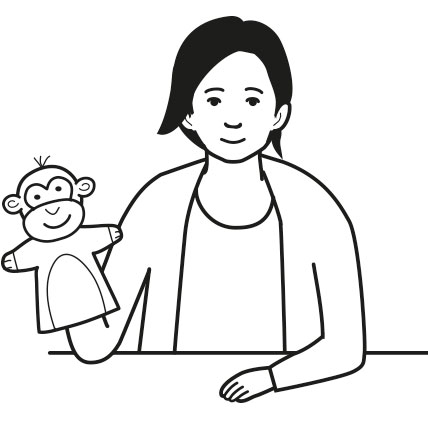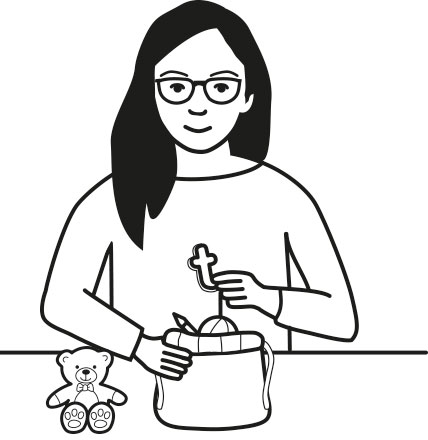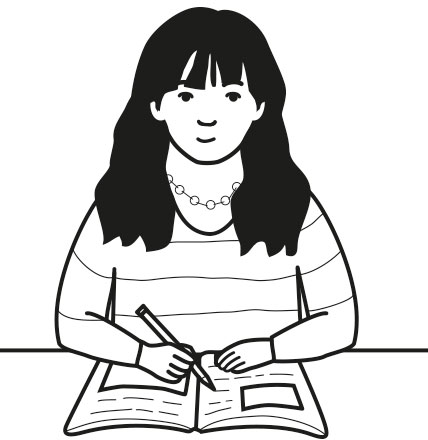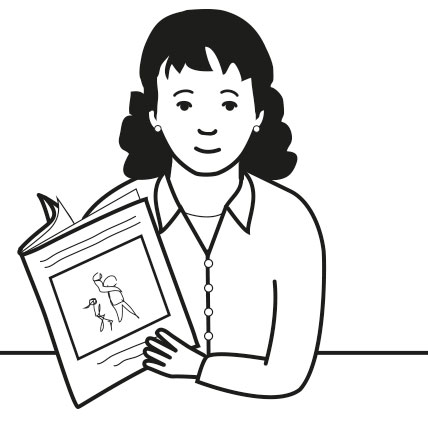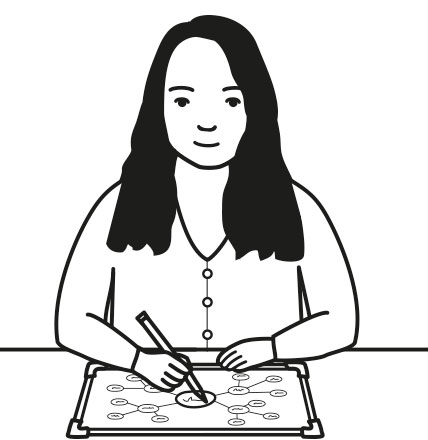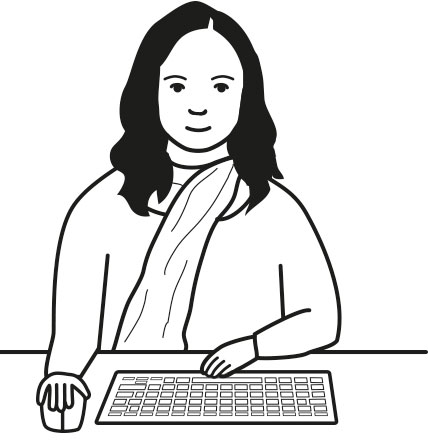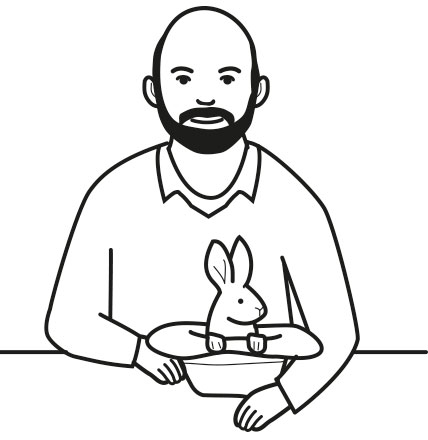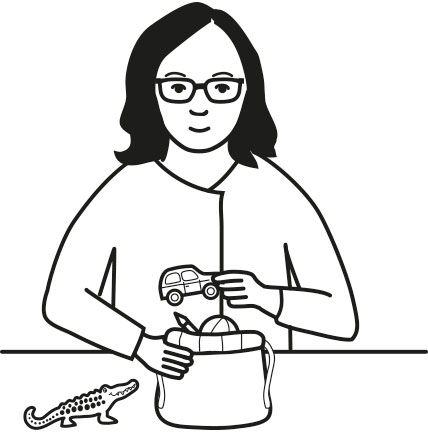Springboard Services – Individual Therapy
How much does it cost and what does that include?
For detailed costs and details please get in touch.
An initial assessment session costs £150 – it lasts around 1.5-2 hours, includes a summary report and all the ‘behind the scenes’ work involved*. For those children with more complex needs, one or more additional assessment sessions are likely to be required. These additional sessions are charged as a standard therapy session (see below).
A standard therapy session costs £75 (plus a travel supplement) – it lasts up to an hour and includes resources to use between sessions and all of the ‘behind the scenes’ work involved*.
What happens in an assessment?
Although this will vary considerably depending on the age of the child and the reason for requesting an assessment, some common elements are almost always present:
- We ask the parent/carer to complete a questionnaire and provide us with as much information before the session as possible. This includes finding out about your child’s interests / favourite things as this helps to build rapport in the first session. The pre-appointment information helps us prepare the session and ensure it is specifically tailored to your child. It also means we spend more time in the session on the actual assessment and engaging with your child.
- ‘Getting to know you time’ – we start with an activity which is based on the child’s interests wherever possible to allow them to relax and become familiar with the therapist. This also allows us to start informal assessment of the child’s speech and language skills which is just as valuable as any formal (scored) assessment.
- Assessment tasks – these usually involve looking at pictures, books, cards, words and being asked to name items, answer questions, retell stories, copy sounds or sentences. We make this as enjoyable as possible and build in ‘learning breaks’ where needed.
What happens in a ‘therapy’ session?
The beginning of the session starts with a review of how the practice activities have been going and sharing any updates e.g. recent hearing tests results. The main part of the session consists of carefully planned activities to move the child on from the previous levels achieved. At the end of the session there will be a discussion between the parent and/or member of school or nursery staff to agree the practice activities for the following week/s.
Will my child be able to concentrate for a full session?
How many sessions will my child need?
It depends primarily on the type and severity of difficulty that your child has, but also on factors such as; how much practice they get between sessions, their age, and their self-awareness / ability to self-monitor their speech.
Once assessment has been completed we will be able to make an ‘educated estimate’ of how much therapy may be needed. Once therapy has started there will be an ongoing process of reviewing of how your child responds to therapy and the amount of progress that they are making. The therapist will therefore keep talking to you about progress and the likely amount of further therapy needed.
We tend to work in school term cycles and arrange a half term or term’s worth of sessions at a time.
What shall I tell my child before the first appointment?
This will vary depending on how old your child is and how aware they are of the reason for our assessment.
For example, if your child has told you “I can’t say that sound” then you can tell them they are seeing someone who can help them with this. You could also say they are seeing someone whose job it is to check on how they are doing with their talking and listening.
If your child is young or is unsure around new people, please don’t worry as we are very used to this and we will make time for your child to get used to us without being under any pressure to speak or take part.
One plea – please don’t tell them that they “must talk” when they come for the session – it generally ends up backfiring!
We can email you a photo of your therapist before the first session so that you can show your child what we look like. Just let us know if this would be helpful.
Why are you often ‘full’?
Several reasons…
- We are a growing but small team and over half of the team’s time is committed to our school commissioned service.
- Therapy often takes a long time and so we are committed to our current children – often for the foreseeable future.
- There aren’t enough hours in the day! Our caseloads are relatively small as one therapy session (pre, during and post) typically amounts to 3 or more hours of our time.
- ‘Word of mouth’ – we strive to provide a high quality of care – exactly as we would want for our children and for ourselves as parents. As we have been established for some time we are well known and are consistently over-subscribed. We would love to be able to help more families and are on the lookout for like-minded therapists to join us.
Do you work with children with all types of speech and language needs?
Currently our private therapy service focuses on working with children predominantly with speech sound difficulties and Down Syndrome.
If you contact us and we do not feel we are the appropriate therapists for your child, we will do our best to direct you to other specialists who are more suitably matched to your child’s needs.
Can we have therapy with you and NHS therapy at the same time?
Yes. The Royal College of Speech and Language Therapists (RCSLT) has guidelines for how therapists should liaise in circumstances where more than one therapist is involved.
We have good links with many of the local NHS Speech and Language Therapists and are often in touch to share information to avoid duplication of assessments and agree priorities for aims / outcomes.
Some families choose to have private therapy while on NHS therapy waiting lists and then pause private therapy if they are offered a course of sessions with the NHS.
Having private therapy should not impact on your child’s entitlement to NHS input.
Springboard Services – ‘School Commissioned Service’
My child is seen as part of your ‘School Commissioned Service’. How can I find out more?
You will often be invited to come and meet the therapist or to speak to them on the phone. If you would like to make contact with the therapist, then please speak to your child’s teacher in the first instance.
Please note that it is the school’s decision about who to refer to us and sometimes this will only apply to a small number of pupils e.g. those receiving Pupil Premium funding.
General Information
Is there NHS Speech and Language Therapy?
Yes, you can ask your local Health Visitors Team or your child’s school or nursery for details.
Alternatively you can visit www.solent.nhs.uk (for Hampshire, Portsmouth and Southampton) or www.sussexcommunity.nhs.uk (for Chichester and West Sussex) for more details.
There may be a wait for your first appointment or therapy sessions – please ask the relevant service for more details.
How do I know if my child has a difficulty?
Sometimes it is clear that your child needs support with some aspect of their speech and language. Sometimes it is not so obvious – particularly if they are still young. Well-meaning friends and relatives tend to try and be supportive and say things like “they’ll grow out of it”. If you have any queries it is always best to get them checked out early so that any help that is needed can be put in place as soon as possible. Some good sources of information are:
- The website www.talkingpoint.org.uk aims to provide parents and carers with information on speech and language development, and has helpful checklists and progress checkers.
- Contact the I CAN Enquiry service (details on the Talking Point website) where you can speak to a speech and language therapist on the phone.
- Speak to your child’s health visitor, nursery keyworker, teacher or GP.
- Your local NHS speech and language therapy service may have a drop-in session that you can attend or an advice line that you can call.
Why do children have speech sound difficulties?
We are planning a blog post on this topic so watch this space!
In the meantime, here’s a helpful brief introduction:
https://www.afasic.org.uk/about-talking/types-of-slcn/what-are-speech-difficulties/
Where can I find out more information about different speech and language needs and how to help?
www.talkingpoint.org.uk (advice and information on a range of communication queries)
www.afasic.org.uk (advice and information on a range of communication queries)
https://stamma.org and https://actionforstammeringchildren.org (advice on stammering)
www.selectivemutism.org.uk (information and advice on selective mutism)
www.autism.org.uk (information and advice about autism)
What qualifications do Speech and Language Therapists have?
All Speech and Language Therapists must complete a recognised three or four year degree programme (or a two-year masters’ degree) and register with the Health and Care Professions Council (HCPC) before being able to practise.
The degree programmes combine academic study in a wide range of subjects including anatomy, linguistics, phonetics, psychology, as well as practice/clinical placements.
After qualifying, Speech and Language Therapists must regularly complete further training and learning activities to ensure they develop and maintain their knowledge and skills. Many have completed courses on specific therapy approaches, such as Makaton signing, PROMPT, Talk Tools, Shape Coding, Colourful Semantics, Narrative Therapy, Word Aware, as well as courses on working with specific conditions e.g. children with hearing impairment, cleft lip and palate or Down Syndrome.
Within our team we have a wide range of skills, knowledge and specialist interests.
How do I become a Speech and Language Therapist?
- Do your research. Make sure it is the right carer choice for you because it’s going to take a lot of time and hard work to get qualified! Have a look at the information on websites like the Royal College of Speech and Language Therapists and NHS Health Careers. Try and talk to therapists – ask them; why they chose to become an SLT, the best and worst bits of the job, their advice to someone starting out now etc. If possible arrange some shadowing – it’s not always easy to do this at the current time – many NHS departments and practices, including ours, have to prioritise students who are already completing their degrees. However, work experience placements in nursing homes, nurseries, mainstream and / or special schools, will be very helpful in understanding communication needs more and staff will be able to talk to you about their experiences of working with SLTs.
- Apply for a course. Check you have the right qualifications or start looking to get the relevant qualifications and experience.
Good luck!
Do you take students on placements?
We are a relatively small practice and most of our team are part-time. Having a student and ensuring they get a high-quality learning experience takes considerable time on top of the ‘day job’. We also work in some settings, and with some children, where it is not appropriate, or where we do not have consent to bring students or people on work experience.
As a practice we are committed to offering a minimum of one placement to a student on a undergraduate degree or master’s degree speech and language therapy course per year. We love having students on placement and learn a lot from them as well.




